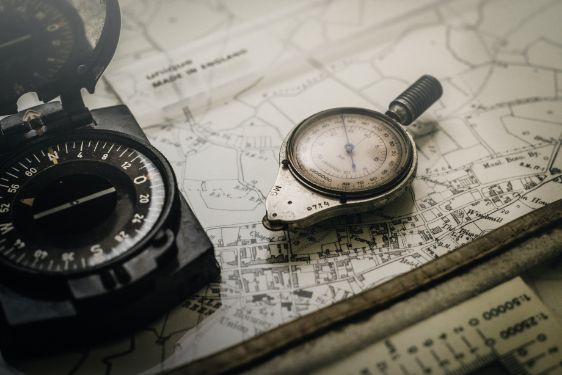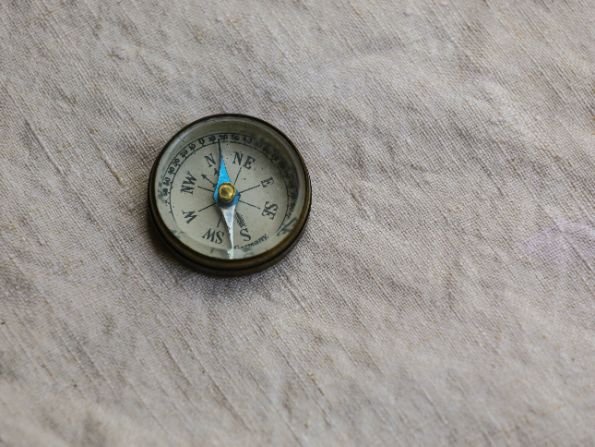Discover the importance of navigation rules and the consequences if you overlook them.
The rules of navigation cover many different topics, such as who has the right of way, speed limits, and instructions provided by safety devices like regulatory markers. They must be followed because they serve as the traffic laws for water travel.
As with all laws, there are exclusions; vessels are occasionally permitted to deviate from these guiding principles. However, overlooking navigation rules frequently results in severe penalties.
When Can a Navigation Rule Be Overlooked?
When a Possible Collision Can Occur
A boat navigation rule states that you have the right of way if you are approaching another boat from its starboard (right) side.
Simply put, if you are driving a boat and another boat is approaching from the right, you have the right of way.
You can maintain the speed you are using in such a circumstance. Prior to accelerating and continuing on their journey, the other boat must slow down to allow you to pass.
However, occasionally you might not notice this from the other boat. When a novice who hasn’t really mastered the boat navigation rules is involved, this is very typical.
There may be a collision if you continue moving at your current speed even though you have the right of way.
The other boat’s actions must therefore be carefully observed by you as a result.
You need to exercise intelligence when the other boat is not moving in accordance with the navigational rules. You will occasionally need to disregard navigational laws. This is to make sure that you don’t run into the other boat.
When There is a Burning Boat Close to You
When another boat collides with a casualty while in a canal, navigational rules may be disregarded.
When boating on a waterway with a narrow path, one of the boating navigational rules states that you must reduce speed. In order to prevent a collision with another boat on the canal, take this precaution.
The boat navigation rule must be disregarded in some books, though. When this happens, another boat on the constrained path may be on fire.
If a burning boat is coming at you on a very narrow waterway behind you, you must speed up to pass the burning boat. If the path of the waterway behind you is too narrow to help you move away from the burning boat, then you should do this.

However, if there is enough room, you can turn your boat to stay away from the burning vessel.
When Facing Turbulent Water Waves
When confronted with choppy water waves, you may also choose to disregard navigational rules. Small boats are at great risk from a turbulent water wave.
When a small boat collides with a water wave that is extremely turbulent, this results in significant damage. The navigation rule may be disregarded at such times to aid the boat operator in navigating the rough seas.
To prevent a bad collision from happening, use a communication system to alert the other boats as well while doing this.
When under An Attack
Depending on the type of water body you are boating on, there are navigation rules that apply when using your boat.
One of the navigation rules states that you must make sure to reduce your boat’s speed when you are sailing on a narrow body of water.
This is to prevent a collision with another boat, which could be moving or stationary. However, occasionally you might be pursued by someone in another boat who wants to steal from you. You need to ensure that you protect yourself in this circumstance.
You can accomplish this by leaving them far behind, which can be done by accelerating your boat.
You must pay close attention to any approaching boats because you are on a narrow waterway, which makes it difficult to stop in time. Do not speed on a narrow waterway to avoid collisions.
What Are Navigation Rules?
All boats must abide by navigational rules, also known as “rules of the road at sea.” These guidelines outline when to pass, approach, give way to, and overtake other boats.
Compliance with certain rules set forth by the maritime community is necessary for safe navigation. The constellations, the latitude and longitude of your location, the location and depth of any nearby land features (such as rocks, shoals, and reefs), and how to use landmarks and a compass to plot a path are all things you need to be familiar with.
Although open water navigation can initially be challenging, seasoned sailors quickly pick up the skills and can take their boats anywhere they want.
What Are the Consequences of Overlooking Navigation Rules?
It’s crucial to adhere to all applicable navigational regulations when at sea. These guidelines are intended to reduce accidents, safeguard the crew, and safeguard the environment.

But occasionally, people fail to follow these guidelines, which has disastrous results. Here are five such consequences:
- Shipwrecks can result from navigational mistakes.
- A captain or member of the crew may also become lost at sea as a result of them.
- They could put the people on the ship in danger, causing severe injuries or even death.
- They might jeopardize the environment.
- If you break navigational regulations and endanger other boaters, you may find yourself in legal trouble.
One of the most frequent reasons for accidents at sea is navigational errors. A ship may find it challenging to navigate safely in choppy waters if it is not properly equipped. To stay safe on the open water, navigators must maintain constant vigilance.
Who May Depart from Navigation Rules?
Everyone’s safety at sea is ensured by navigational regulations. Avoid danger, some people may, however, deviate from these guidelines in unique situations. Below is a list of those who can disobey navigational laws.
Those in Imminent Danger
All people in immediate danger must abandon maritime navigation regulations, according to the current climate for maritime law enforcement. Both those who are in a dangerous situation and those who are dealing with a life-threatening emergency are included in this.
Permission to deviate from the traditional strategy of upholding the letter of maritime law is an exception.
The two reasons for this deviation from maritime law’s letter are that, first, when people are in immediate danger, their safety comes first, and second, by doing so, those who are in danger can more easily communicate with those who are trying to harm them. To ensure the safety of all sailors, this clause is in place.

Pirates and Illegal Fishermen
These groups disregard navigational regulations even though it is illegal. They act in this manner because they are confident that they will not be caught by law enforcement and that they can get away with it. It’s important to remember that they will incur legal consequences if they are discovered.
Those Experiencing a Mental Health Crisis.
People may violate standard maritime navigational regulations when they’re going through a mental health crisis. For instance, a person going through a psychotic episode might not be able to follow the straightforward instructions of a navigator.
Additionally, people who are experiencing strong emotions or who are high on drugs or alcohol might not be able to think clearly.
It is essential that a navigator is on hand and ready to help someone who might not be able to make wise decisions in these circumstances.
Research Vessels
Those conducting research in marine science make up the majority of research vessels that break maritime navigation laws. These ships are necessary for marine scientists to gather information about the oceans and the creatures that inhabit them.

These ships frequently use improbable methods of navigation, like navigating by using ocean currents. Many of these vessels operate in violation of established maritime laws, which has some lawmakers concerned.
Ignorance of the Regulations
The primary factor in maritime disasters is human error. Everyone on board must be aware of and adhere to the maritime rules of the road in order to ensure mariner safety. Because they are not aware of them, vessels frequently violate navigational rules.
Safety protocols are more likely to be disregarded by novice sailors if they are unfamiliar with them. This could endanger the crew and leave the ship at sea.
For instance, a sailor in a small boat might be unfamiliar with the rules for safe navigation in shallow waters and make critical errors. Education is the only way to prevent misuse, which happens when people lack sufficient knowledge of a subject.
The frequency and severity of these incidents can be significantly decreased by educating mariners about maritime law and safety.
Conclusion
The question of when navigational rules can be disregarded is perennially complex. You should be aware that, in order to prevent damage, navigational regulations should only be disregarded under extreme circumstances.
One of the key maritime laws is navigational regulations. To ensure the safety of your sea voyage, you must adhere to these regulations.

